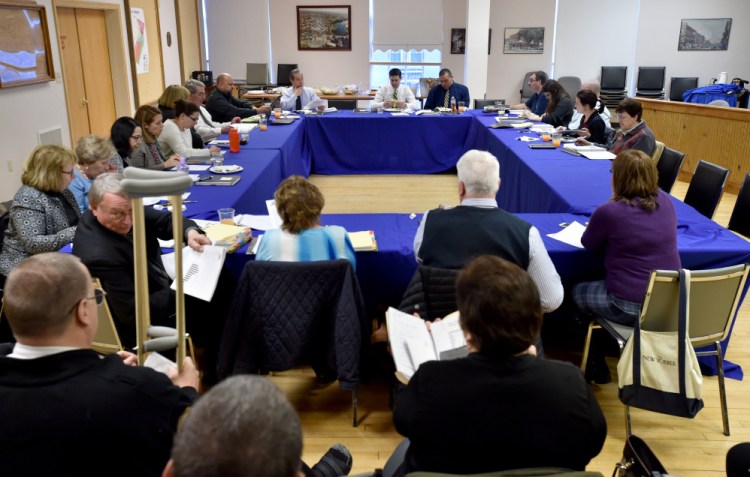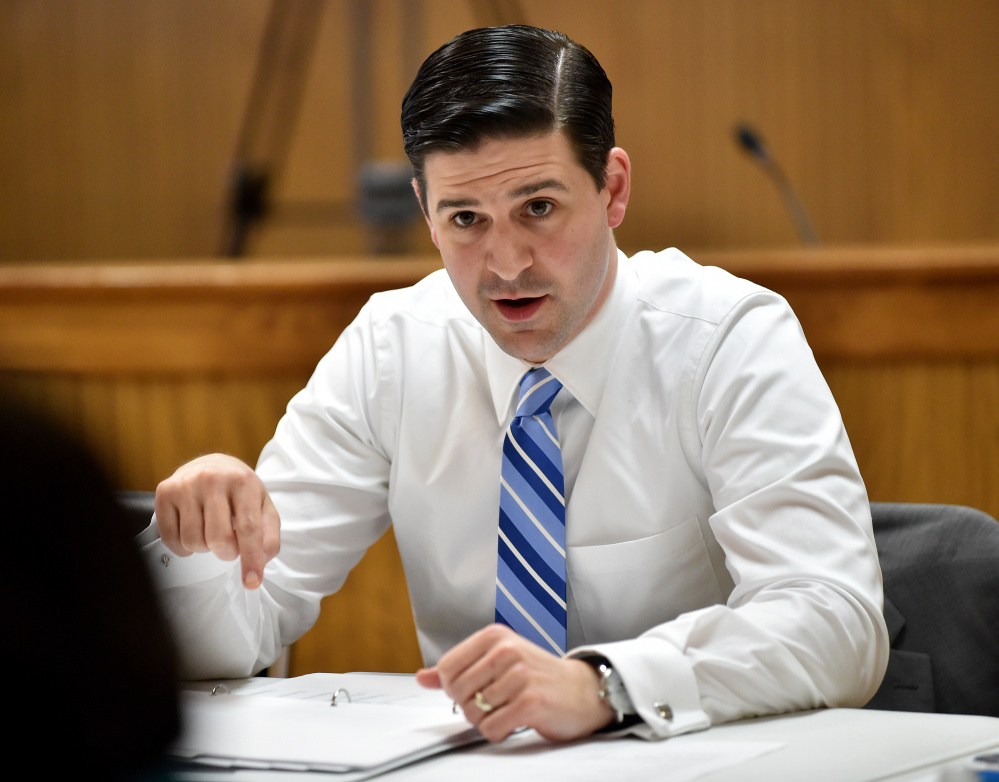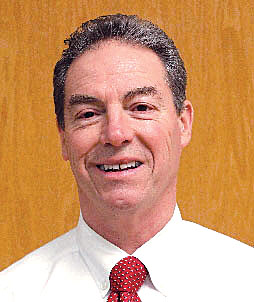WATERVILLE — The City Council Tuesday night will hone final numbers for the proposed 2016-17 municipal and school budgets, which city officials say is one of the toughest in years.
The first vote on the package is expected Tuesday, June 21, and likely a second and final vote would be taken July 5.
The budget workshop will be at 6 p.m. in the council chambers at The Center.
City Manager Michael Roy said Friday that the budget process has been a tough one.
“I think I can honestly say that this has been the most difficult budget in my 11 years here because of continued reductions in our state revenue sharing and the fact that we’ve used surplus the last few years to fill the gap,” he said. “And now we don’t have the same level of surplus we’ve had to do that.”
Mayor Nick Isgro said Friday the city is in a “tight bind” because of the loss of state revenue sharing.
The city’s finance committee will meet Monday to discuss the proposed 2016-17 municipal and school budgets. The committee recommended late last month that the council approve a $39.1 million package, which represents a decrease in the tax rate of 18 cents per $1,000 worth of valuation. That proposed budget represents about a 1 percent increase in spending over the current $38.7 million budget, but because revenues are higher than last year, the impact would be smaller, according to Roy.
With that plan, the proposed municipal budget is $17.9 million. The municipal budget approved for 2015-16 was $17.5 million. The proposed school budget is $21.1 million. The school budget approved for 2015-16 also was $21.1 million. If a $39.1 million budget were approved, the current tax rate of $27.40 per $1,000 would be reduced to $27.22.
The finance committee May 25 recommended to councilors $385,460 in cuts: a $100,000 reduction in school spending; eliminating a proposed code enforcement officer for $65,080; $40,000 from Waterville Main Street; $18,000 from Kennebec Valley Council of Governments; $52,900 from public works; $50,000 from the capital works paving budget; $36,000 from the fire department’s call firefighter wages and $16,000 in non-wages; $10,325 from parks and recreation; $6,000 from the police department; $5,000 from contingencies and $1,765 in other costs.
Roy said school officials will be at Tuesday’s workshop and City Assessor Paul Castonguay will be there to help explain how the city’s property revaluation will affect the tax rate.
Isgro said Friday that it is important to understand that if the tax rate decreases because of the property revaluation, residents should not view that as a tax cut.
With the property revaluation, some people’s taxes will increase, some will decrease, and some will remain the same, he said. The property revaluation readjusts values whereas a tax cut is when the city asks taxpayers for less money than it asked them for in the previous year, according to Isgro, who is a member of the city’s finance committee.
“What I’m looking for and the finance committee is looking for are true tax cuts — increased revenues or decreased spending or a combination of both,” he said.
Roy said city officials hope the financial picture will improve with downtown revitalization, the Trafton Road interchange project, development of the former Seton hospital on Chase Avenue and the former convent on Western Avenue into housing and continued development of the Hathaway Creative Center. Those projects are expected to produce tax revenue that the city is not now collecting.
Isgro said there’s no doubt the city is still in a tight bind and there are a couple of reasons for that. First, the city in the last few years has used state revenue sharing money to help offset the tax rate and the city has lost more than $1 million annually in revenue sharing over the last three years.
“Prior to my term, there were three bonds taken out to pay for various projects and that has added an additional $1 million in spending annually,” he said. “So, when you take away $1 million and add $1 million in spending, that’s why we’re in a tight bind. It’s a combination of those two things.”
What the city is trying to do is increase revenues and expand the tax base while trying to wean itself off the practice of using money from surplus, according to Isgro. Now, the city is trying to keep the surplus at 12 percent of the last city budget.
The city knows it will have $300,000 from the sale of land on The Concourse to Colby College for use this year, and the Main Street tax increment financing district will expire next year, giving the city $400,000 annually after that, he said.
Meanwhile, Isgro praised councilors, city department heads and the finance committee for their work on the budget.
“The finance committee has been very strategic in our discussion of trying to look at what do the next three years look like, not just how to get through this year,” he said. “I’ve been impressed with all the department heads who have been just really gracious and understanding and had a positive attitude and have said we’ll make do with what we have and we’re OK. There’s been a lot of engagement with the council, people asking questions. I think there’s a much higher level of engagement. We have a pretty solid council right now. There’s a good mix of personalities, a lot of different viewpoints, but they’re all engaged.”
Amy Calder — 861-9247
Twitter: @AmyCalder17
Send questions/comments to the editors.






Success. Please wait for the page to reload. If the page does not reload within 5 seconds, please refresh the page.
Enter your email and password to access comments.
Hi, to comment on stories you must . This profile is in addition to your subscription and website login.
Already have a commenting profile? .
Invalid username/password.
Please check your email to confirm and complete your registration.
Only subscribers are eligible to post comments. Please subscribe or login first for digital access. Here’s why.
Use the form below to reset your password. When you've submitted your account email, we will send an email with a reset code.